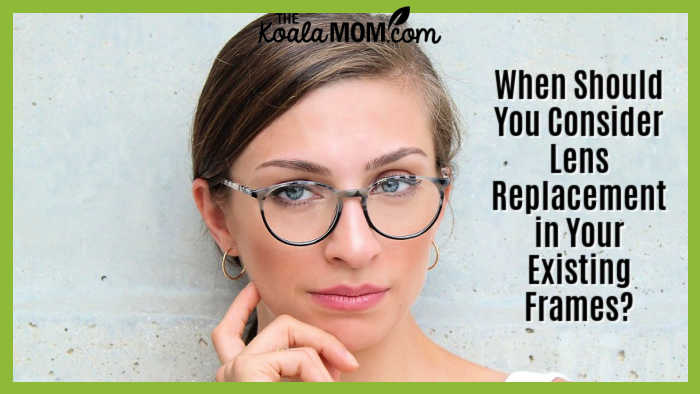Deciding when to opt for lens replacement in your existing eyeglass frames comes down to a few key factors. If your prescription has changed, but your frames still suit your style and face well, replacing just the lenses can be a time- and cost-effective solution. If you’ve grown attached to a particular frame that complements your features or resonates with your personal style, lens replacement can refresh your vision without the need for a new frame. It’s important to ensure your current frames are in good condition, as lenses can only be effectively replaced in frames that are undamaged and structurally sound.
In addition to prescription changes, lens replacement may also be necessary if your lenses are scratched, cracked, or experiencing wear that hinders your vision. Regular wear and tear can degrade lens clarity over time. For those on a budget, replacing lenses in your existing eyeglass frames can make financial sense, especially since frames can be a significant portion of the cost for prescription glasses. Always ensure your updated prescription accommodates any changes in your vision before proceeding with lens replacement.

Key Takeaways
- Lens replacement is practical if your prescription changes but your frames are still in good shape.
- Consider replacing lenses if they are damaged or your vision needs are not being met.
- Opting for lens replacement can be an eco- and budget-friendly alternative to purchasing new eyeglass frames.
Evaluating the Condition of Your Frames and Lenses
Before considering lens replacement in your existing frames, it’s crucial to evaluate the condition of both the frames and lenses of your glasses to ensure compatibility, fit, and cost-effectiveness.
Signs of Wear and Tear
Examine your frames and lenses for signs of wear such as scratches, cracks, or bending. Minor scratches on lenses can sometimes be polished out, but deeper ones can affect your vision and may require lens replacement. Similarly, frames that show minor wear may still be suitable for new lenses, whereas severely damaged frames might not maintain the structural integrity needed to hold new lenses securely.
Assessing Frame Durability
Consider the material and construction of your frames. High-quality metals or robust plastics generally offer greater longevity. Check all connection points, like the screws and hinges; they should be tight and not corroded. If your frames seem brittle or have already been repaired multiple times, they may not withstand the process of fitting new lenses.
When to Replace Damaged Lenses
If your current lenses are damaged, causing vision impedance or discomfort, replacing them is recommended. For prescription changes, ensure that your frames can accommodate the new lens thickness. If you’re unsure about the durability or appropriateness of your frames for new lenses, consult with a professional who can assess whether lens replacement is viable.
Choosing Replacement Lenses for Your Frames
When you’re considering lens replacement, assessing the quality, cost, and compatibility with your favorite frames is crucial.
Optometrist Consultation and Eye Exam
Before beginning the process of lens replacement, schedule an eye exam with an optometrist to ensure your prescription is up-to-date. This vital step guarantees that your replacement lenses will match your current vision requirements, which may include progressive lenses or specific corrections.
Understanding Lens Materials and Coatings
Replacement lenses come in a variety of materials, such as polycarbonate or high-index plastics which are lighter and offer greater impact resistance. When selecting lenses, also consider additional treatments like anti-glare coating which can enhance visual comfort, especially if you frequently use digital screens.
Comparing Online Retailers and Optical Shops
Compare the services of online retailers and optical shops to see where you can get the best value for frames and lenses. Online retailers can often provide cheap lens replacements, but ensure to verify their reliability and the quality of their products before purchasing. If you frequently need your glasses adjusted, then an optical shop is a better option as you can easily drop by for that.
Cost Analysis and Vision Insurance Considerations
Analyze the lens cost along with your vision insurance coverage to determine the most cost-effective route for your lens replacements. Keep in mind that while some vision insurance plans cover lens replacement, the extent of coverage for lens materials and coatings such as transitions varies. Your insurance coverage may also only cover new lenses or eye exams every two years.
Remember to always consult your vision insurance for eligibility and coverage details for both online and optical shop purchases when considering new lenses for your existing eyeglass frames.
Replacing the lenses in your eyewear should be considered when their condition affects your vision or comfort. If your current frames are in good shape, reglazing services can offer a cost-effective way to update your glasses. Remember to check for scratches, coating degradation, or prescription changes. Choosing to replace only the lenses can also be a sustainable choice, reducing waste and extending the life of your favorite frames.


No Responses Yet